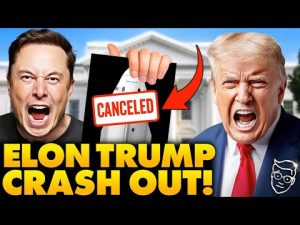The Secret Service has seen some dramatic changes recently, and one figure at the center of the storm is finally out the door. The once-acting director of the agency has officially stepped down, leaving many to wonder how he lasted in his position for so long. Not only did he oversee a high-profile operation that failed spectacularly in Butler, Pennsylvania, but his departure also came after months of being surrounded by controversy and questions surrounding accountability.
It seems like this director was more skilled at corporate speak than actually effectively leading the Secret Service. Throughout his tenure, he leaned heavily on bureaucratic language, often mentioning “mission assurance reviews” instead of the more straightforward term “investigation.” It raises an eyebrow—what does “mission assurance review” even mean? Maybe it’s just a fancy way to dodge accountability. After all, when failures happen, it’s always convenient to discuss “new policies” rather than accepting real blame.
The investigation into the Butler incident was supposed to focus on whether agency protocols were violated. If there were indeed violations, one would expect those responsible to face repercussions. However, it seems those who bungled their responsibilities managed to lawyer up and evade serious punishment. It’s disheartening to think that a serious lapse in security that put a president’s life in danger did not result in immediate accountability. It only took four months for this director to officially leave his position while still collecting a paycheck, which seems a bit outrageous, doesn’t it?
Meanwhile, in the fast-paced world of the private sector, consequences are more immediate and severe. Take, for example, the swift removal of a coach from the New York Knicks, who didn’t even make it past the first round of playoffs this year. Just a day after the season ended, the team made the decision to fire him, despite his decent performance. In contrast, one must wonder how this Secret Service director floated by for so long. The reality is that protecting the president should be taken very seriously, and those responsible for failing at such a high level need to face the music.
With political tensions heating up and civil discourse deteriorating, there are real dangers at play when discussing accountability and protection for leaders. The rhetoric surrounding the current administration, particularly involving former President Trump, has been charged and aggressive. This all plays into a larger narrative of political corruption, and some individuals are trying to draw parallels between Trump’s business dealings and past scandals. Critics, such as those from media outlets, argue that Trump’s actions are unprecedented, but is that an overstatement?
One must consider how the political landscape has shifted over recent years. While President Trump is advocating for innovations like cryptocurrency, suggesting that it can lead to economic prosperity and independence, detractors criticize him with accusations rooted in their previous media framing. The likes of David Frum, who once penned justifications for the Iraq War, now seem to be casting stones from their glass houses. It’s important to recognize that there’s a double standard at play, particularly when comparing the business dealings of mainstream politicians and their families.
In the end, the departure of the Secret Service’s acting director might just be a small step in a larger saga of accountability within government agencies. As the administration faces intense scrutiny, one can only hope that true accountability prevails for those who have been negligent in their duty to protect the highest office in the land. Meanwhile, as new economic frontiers like cryptocurrency emerge, it will be fascinating to see how both political parties embrace this evolving financial landscape while also keeping their existing narratives in check.







